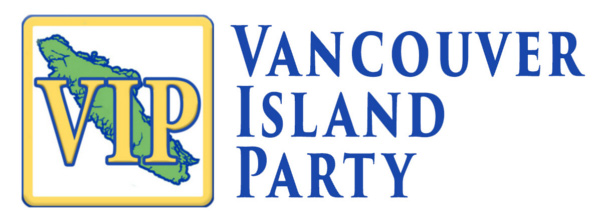Toronto Star Reports Founding of Vancouver Island Party
A new political party in British Columbia believes that Vancouver Island should become Canada’s 11th province, and a former Toronto MP is leading the charge.
Robin Richardson, the Progressive Conservative MP for the Beaches riding (now roughly Toronto-Danforth and Beaches-East York) for nine months in 1979 to 1980, is the founder and leader of the Vancouver Island Party. It was registered with Elections BC in March 2015 but only went public last week, and a key point in its platform is to eventually have the island become its own province.
“Vancouver Island is a wonderful place to live and work, but… Federally, as well as provincially, the governments have largely ignored Vancouver Island,” Richardson, an island native, told the Star in a phone interview.
Richardson, an economist by trade, said he became interested in the idea of provincehood for Vancouver Island while writing a book on British Columbia’s pre-Confederation history two years ago – in particular, the fact that mainland British Columbia and Vancouver Island were separate colonies until 1866. He started the party because he “felt there was a lot of support” from other residents, and said he expects to have at least 3,000 members by the end of November (there are currently around 25).
On its website, the party has a seven-part plan for achieving provincehood, with the first step focusing on electing party members to the legislative assembly in the 2017 provincial election. Richardson said a candidate will run in each of Vancouver Island’s 14 districts, and he thinks up to seven will be elected on a platform that includes guaranteed annual income, free post-secondary education, a focus on an environmentally-friendly economy and tax breaks for the middle-class.
From there, the party wants to hold a referendum on the island in 2021 asking residents if they support provincehood, form a government on the island and eventually negotiate its terms of provincehood with the federal government.
Other than the 2017 election and referendum, there are no set dates for when each step will happen.
“If I’m still alive [when Vancouver Island becomes a province], I’ll be the premier,” Richardson said while laughing, “but that’s not my motivating force. My motivating force is, I want to everybody to be better off, you know? Better off economically, socially and environmentally.”
He emphasized, though, that he wants the island to remain a part of Canada.
“I’m not a separatist… What we’re going to do is become independent from the rest of British Columbia,” he said.
“I think that we can become much better off, much better off as a region of British Columbia and even better off as a province of Canada if we had our own government.”
This isn’t the first time a collective has pushed for Vancouver Island’s provincehood. The Vancouver Island Province Movement was launched in June 2013 and has been circulating both provincial and federal petitions asking for provincehood by 2021, and the apparently now-defunct and more radical Sovereign State of Vancouver Island Party formed the same summer, advocated for the island to separate not only from British Columbia but from Canada as a whole.
The push for provincehood isn’t unique to Vancouver Island, either. The idea of the Province of Toronto has been floated multiple times over the years – perhaps most famously by then-Mayor Mel Lastman in 1999 during a spat with then-premier Mike Harris, and, more recently, in 2010 by Bruce-Grey-Owen Sound MPP Bill Murdoch. And in 1997, a Quebec lawyer made a case for the Province of Montreal while the Supreme Court of Canada was hearing arguments on the legality of Quebec declaring independence. Guy Bertrand argued that should Quebec secede, residents of Montreal and surrounding regions against sovereignty should be able to remain Canadians.
“As soon as Quebec becomes independent, two minutes later a new province will be born and no one can stop this movement,” Bertrand told the Star in 1997.
The desire for provincehood need not even be bound by Canada’s current geographical borders – the premier of Turks and Caicos, in the Caribbean, floated the idea of joining Canada in 2014.
By permission with files from Star staff

